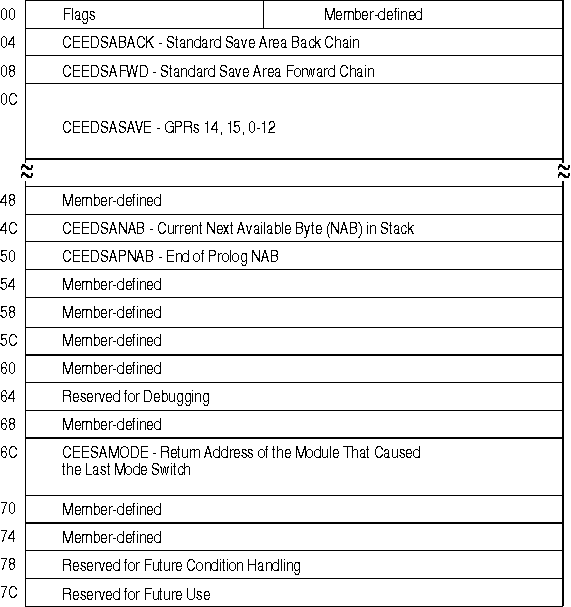The stack frame, also called dynamic save area (DSA), for each active routine is listed in the full dump.
A stack frame chain is associated with each thread in the runtime environment and is acquired every time a separately compiled procedure or block is entered. A stack frame is also allocated for each call to a Language Environment service. All stack frames are back-chained with a stopping stack frame (also called a dummy DSA) as the first stack frame on the stack. Register 13 addresses the recently active stack frame or a standard register save area (RSA). The standard save area back chain must be initialized, and it holds the address of the previous save area. Not all Language Environment-conforming compilers set the forward chain; thus, it cannot be guaranteed in all instances. Calling routines establish the member-defined fields.
- R1 is a pointer to parameter list or 0 if no parameter list passed.
- R0, R2–R11 is unreferenced by Language Environment. Caller’s values are passed transparently.
- R12 is the pointer to the CAA if entry to an external routine.
- R13 is the pointer to caller’s stack frame.
- R14 is the return address.
- R15 is the address of the called entry point.
